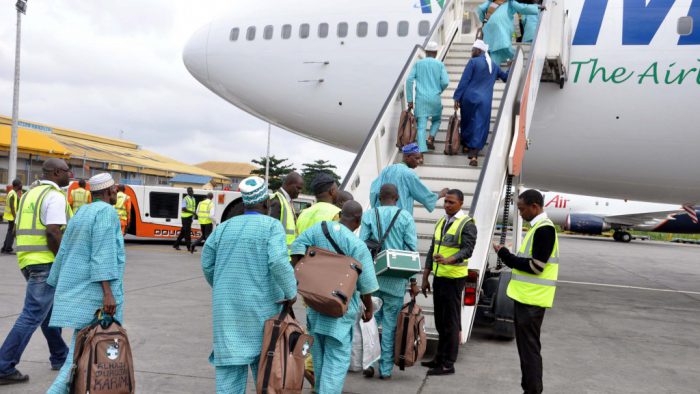Earlier this week, the National Hajj Commission of Nigeria (NAHCON) announced the fare details for the 2025 Hajj. From it, intending pilgrims from the country’s southern region will be required to pay N8.7 million, while those from the northern region will have a fare of almost N8.5 million.
While Nigerians continue to lament the high fare, NAHCON said it exerted serious efforts, including consultations with service providers, to ensure that the fare did not exceed N9 million.
Every day, Nigerians are reminded of how badly their currency, the naira, has continued to perform compared with other international currencies like the dollar, euro, Saudi Riyals, and pound. The weakened nature of the naira is reflected in the cost of virtually every imported item or service.
As Muslims worldwide prepare for the 2025 hajj rites, their counterparts in Nigeria are, for yet another time, feeling the pinch of a weak naira compared to the dollar. This situation is responsible for the exorbitant fare Nigerians are asked to pay to perform this important religious rite.
It is essential to note that the Hajj, or pilgrimage, is one of the five pillars of Islam. It follows the article of faith, five obligatory prayers, fasting in the month of Ramadan, and payment of zakat. Therefore, it is obligatory for a Muslim who has the means to embark on this spiritual journey at least once in a lifetime.
In dollar terms, the cost of the Hajj for the year 2025 is set at about $5,578, slightly lower than the $5,692.25 paid for 2024. However, Nigerians are spending millions because the naira is very weak compared to the dollar, which is among the major currencies of hajj transactions.
Nigerians are bearing the brunt of an unstable exchange rate between the naira and the dollar. The nation has continued to record a progressive increase in the hajj fare over the years, with the latest increase coming at a time of dire straits for most citizens, including the Muslim ummah, who are expected to embark on this very crucial journey of spiritual rebirth.
The high fare is coming against a general lull in the Nigerian economy amidst the floating of the naira and fuel subsidy removal without attendant remedial measures to cushion the impact, consequently causing prices of virtually everything to skyrocket.
The impact of this year’s high hajj fare is already being felt, with a very low turnout of Nigerians registering for the exercise less than one month before the deadline given by NAHCON.
We recall that the Saudi authority allocated 95,000 hajj seats to Nigeria for distribution to all the states and the FCT. Given the current hardship, there are already concerns that the seats may not be fully used even though the nation has millions of Muslims who have yet to perform this religious rite.
In 2024, the federal government offered N90 billion as a subsidy to NAHCON for the exercise. Of course, this helped reduce the fare paid by Nigerians who registered through the state pilgrims’ boards. Sadly, how NAHCON utilized this subsidy became controversial, with widespread mismanagement and outright fraud allegations. This led to the suspension and eventual replacement of the former chairman, Jalal Arabi, with Professor Abdullahi Usman Saleh.
Indeed, these are challenging moments for NAHCON. We know for a fact that the agency’s task, which includes creating a realistic Hajj fare template, galvanising States Muslim Pilgrims’ Welfare Boards to embark on massive awareness, and selecting service providers that can deliver quality services, among a plethora of others, is quite daunting.
However, with plans for the 2025 hajj exercise at an advanced stage, we urge the government at both national and subnational levels to explore the possibility of intervening to help reduce the fare payable by intending pilgrims.
We are not oblivious to the fact that Nigerians, especially intending pilgrims, are skeptical of subsidy payments to NAHCON, judging by the controversy surrounding the use of last year’s N90 billion in federal government support.
To minimize the risk of possible abuse, state governments that intend to help- and we think all the states should- can do that through direct payment to the account of service providers to ward off the likelihood of abuse. Support is needed in whatever way possible to make the hajj exercise successful, and the time to offer it is now.
As a newspaper, we have in mind the affluent and well-to-do Nigerians who are perceived to be large-hearted enough to lift the burden off the shoulders of the less-privileged among the faithful. That gesture has its reward not just in Heaven but also here on earth.
